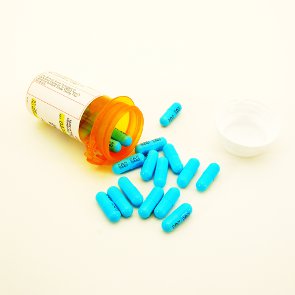How to Prevent Infection
 No one is completely secure from infectious diseases: there is always a possibility that you might catch one. However, you can try to reduce the probability of becoming infected.
No one is completely secure from infectious diseases: there is always a possibility that you might catch one. However, you can try to reduce the probability of becoming infected.How to prevent infection?
First of all let us define the infection. By infection, we understand the invasion of a host organism by pathogenic viruses, bacteria and other disease-causing organisms. These organisms multiply and produce toxins. The host organism reacts to infections using its immune system, that is how the symptoms of an infectious disease become evident.
Infections are dangerous because they can be transmitted from one host to another, therefore most of infections spread very quickly. That is why it is very important to prevent infection when you are still healthy and try not to infect other people if you are already infected yourself.
Each infection has its symptoms that depend on the particular type of infectious disease. Some symptoms (lost of appetite, fatigue, fever, ache, pain etc.) affect the whole body, others (coughing, a runny nose, skin rashes etc.) are specific to individual parts of the body. It is very important to determine the cause and type of a specific infection correctly in order to find the right cure.
The matter is that most infections split into two large groups depending on their cause. They are viral infections and bacterial infections. They are caused by pathogenic viruses and pathogenic bacteria respectively. Bacterial infections can usually be cured by antibiotics while viral infection cannot. How to distinguish a viral infection from a bacterial one?
Most viral infections are systemic. A systemic infection involves many different body parts and/or systems at once. Viral infections are usually not painful, and if they are the pain is usually described as burning or itchy. Bacterial infections are usually localized. They are characterized by pain in a specific body part, redness, swelling, and heat.
As soon as you observe the first symptoms of infection you must consult a specialist. He will determine the type of infection and prescribe the treatment. Infections are suppressed by anti-infective drugs (antibiotic/antibacterial, antiviral, antifungal, and antitubercular). But how to prevent infection if you are still healthy?
Different infections are transmitted in different ways, therefore they are prevented in different ways, too. Adequate hygiene is the most important defence against the spread of pathogenic organisms. Wash your hands frequently. Do not share your toothbrush, towel and other personal items (even with the members of your family). Use safe cooking practices and make sure that the foods you eat are fresh. Be cautious with animals.
You should also stick with a healthy lifestyle in order to strengthen your immune system. One more important means of preventing infectious diseases is vaccination. And the easiest way to avoid sexually transmitted infections is to use condoms.
So everything seems quite simple. If you do not observe any symptoms, you should try to prevent infection. If symptoms are already present, you should consult a doctor.
Breadcrumbs
Tags